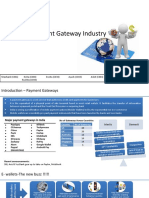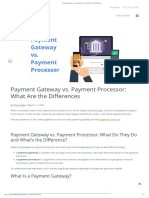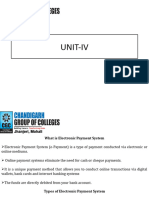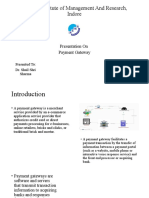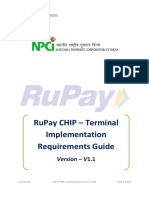0% found this document useful (0 votes)
207 views5 pagesDigital Payment System
A payment gateway is a technology that allows merchants to accept debit and credit card payments from customers online or in-person. It connects e-commerce applications and payment processing systems to verify payments and transfer funds between customer and merchant accounts. Common types of payment gateways include self-hosted, hosted, local bank integration, and API-hosted gateways. Payment gateways provide secure payment processing, fraud prevention, payment authorization, processing, reconciliation, and support for recurring payments and multiple payment methods. APIs help integrate payment gateways with other software applications and services.
Uploaded by
BazilCopyright
© © All Rights Reserved
We take content rights seriously. If you suspect this is your content, claim it here.
Available Formats
Download as PDF, TXT or read online on Scribd
0% found this document useful (0 votes)
207 views5 pagesDigital Payment System
A payment gateway is a technology that allows merchants to accept debit and credit card payments from customers online or in-person. It connects e-commerce applications and payment processing systems to verify payments and transfer funds between customer and merchant accounts. Common types of payment gateways include self-hosted, hosted, local bank integration, and API-hosted gateways. Payment gateways provide secure payment processing, fraud prevention, payment authorization, processing, reconciliation, and support for recurring payments and multiple payment methods. APIs help integrate payment gateways with other software applications and services.
Uploaded by
BazilCopyright
© © All Rights Reserved
We take content rights seriously. If you suspect this is your content, claim it here.
Available Formats
Download as PDF, TXT or read online on Scribd
/ 5
















